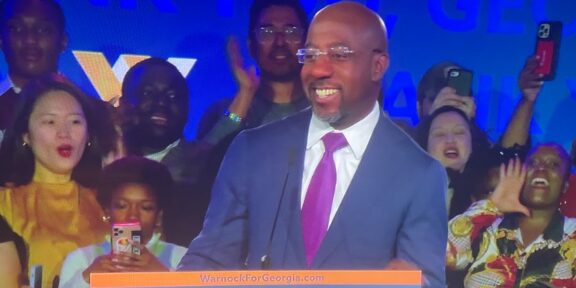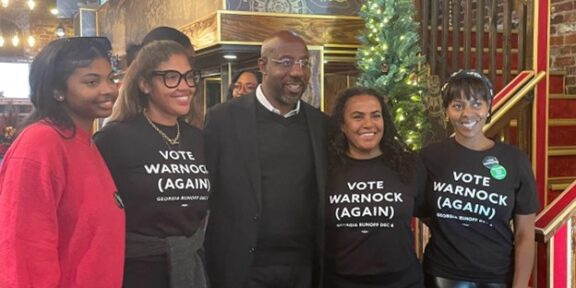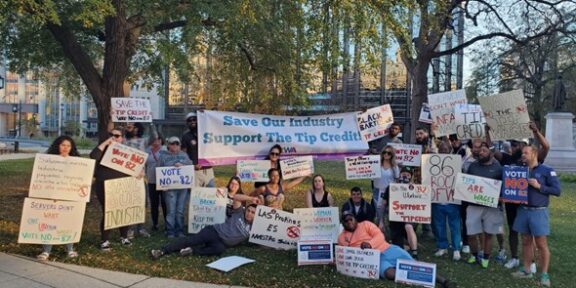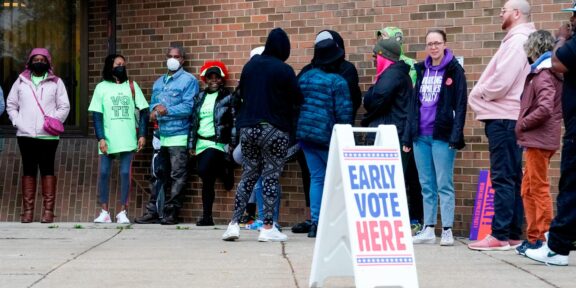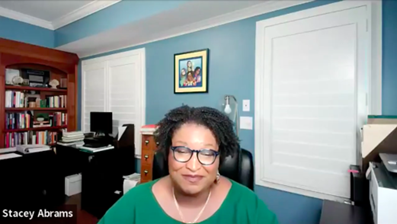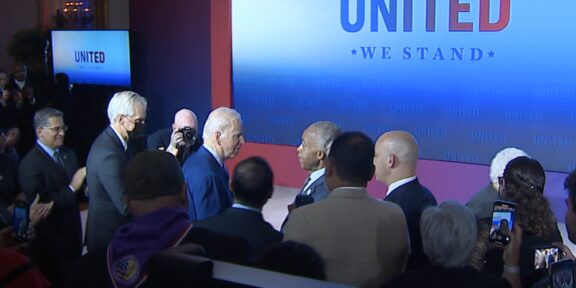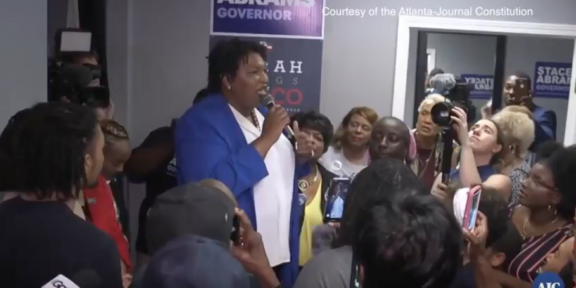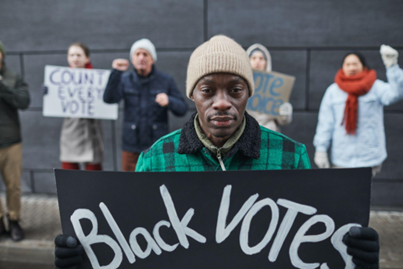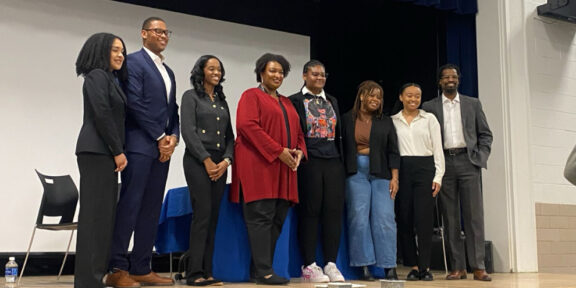By Toni Odejimi
Howard University News Service
Though Republican incumbent Gov. Brian Kemp was projected to win Georgia’s gubernatorial race in most polls, Democratic opponent Stacey Abrams and her supporters were still hopeful until the end, as reflected in her visit at Georgia State University on the eve of Election Day. About 3.9 million voters cast ballots for governor, according to election results from the Georgia Secretary of State. Kemp captured 53.44% of the vote; Abrams, 45.85%; and Libertarian candidate Shane Hazel, 0.71%.
_________________________________________________________________________________________
Georgia gubernatorial candidate Stacey Abrams returned to campaign at Georgia State University to get students to the polls and help her become the nation’s first Black woman governor.
She previously visited the campus on Oct. 20 with Bee Nguyen, Democratic candidate for Secretary of State, and Nakita Hemingway, Democratic candidate for Commissioner of Agriculture. During that time, she also visited Fort Valley State University.
Abrams’ first visit to GSU had her on a stage, promising affordable housing and access to abortion in an auditorium filled with her supporters. For this visit, she was on the grass, getting up close with students. Here are the topics that she discussed with students and their stance on the election:
A Focus on Election Day
Despite polls from FiveThirtyEight and elsewhere projecting that Kemp will retain his seat, Abrams still believes that she can win this race. She explained that around 4.7 million voters will cast their vote, with around 2.5 million already doing so. The estimated 2 million voters who are waiting until Election Day could narrow the gap between Abrams and Kemp, according to Abrams’ election observers.
“We are seeing record turnouts across the metrics that we saw in ’18,” Abrams said.
Diversity on Campus
While Georgia has not used affirmative action to the extent of other states, Abrams maintains that diversity has to be reflected in “the composition of our student body.” The Atlanta Journal-Constitution reported that the University of Georgia had stopped using race as a factor in enrollments since 2000. The University System of Georgia stated in the article that race isn’t a factor in admissions processes.
One way to accomplish diversity, Abrams says, is through expansion of the HOPE Scholarship. The HOPE Scholarship was created by former Georgia Gov. Zell Miller, and it covers up to 15 credit hours per semester for students who maintain a 3.0 GPA. Abrams wants to change all of that.
Abrams wants to make the Hope Scholarship dependent on finances instead of GPA, which could increase the socioeconomic pool of students. This is big, especially for GSU students. Changing the parameters of HOPE could allow for more students to go to GSU or other schools in the state of Georgia.
During Abrams’ last visit to the school, the mention of HOPE becoming needs based garnered roars from the crowd. And even though this visit was more of a meet and greet, students were still hopeful for her victory.
“Georgia is one of only two states in the nation that does not provide need-based financial aid, and I will solve that problem as the next governor of Georgia by fall of 2023,” Abrams said.
Immigration
Abrams’ supporters give different reasons for wanting her to win. Abrams’ stance on immigration carries weight with Diana Loek, whose father was in America while she and her mother were 9,000 miles away in Indonesia. Loek doesn’t want to know what four more years of Kemp look like.
Other students shared similar concerns. Michael Mitchell said he doesn’t see much of a future for progressive policies with Kemp as governor. Mitchell disapproved of Kemp’s response to COVID-19 in quickly reopening the state.
Reproductive Rights
Abortion is a major issue with student voters. With Kemp’s Heartbeat Bill in place, access to abortion is extremely limited. The Heartbeat Bill specifies that abortions can only be performed before the fetus turns six weeks old.
Kennedy Levister said that four more years of Kemp would continue this limitation on reproductive rights. She claimed that the restricted abortion access would affect “everyone with a uterus,” but specifically women of color.
Campus Supporters
Leo James believes that Abrams is the best fit for Georgia and that she’ll do the right things for the state as a whole.
“I feel like she’s gonna pull through,” James said. “She’s gonna win. I hope so.
Thomas Machado said it feels like 2020 all over again, when Georgia flipped blue for Biden. He believes that hope is still alive for the Abrams’ campaign.
“It feels like a good energy in Georgia,” Machado said.
Toni Odejimi, a student at Georgia State University, is a reporter on the election team for HUNewsService.com.


